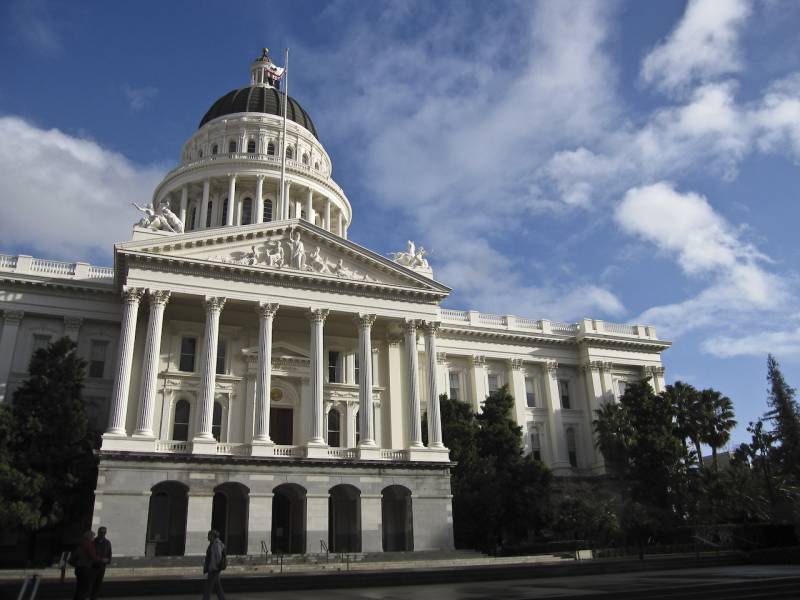“It’s just crazy,” said state Sen. Bob Wieckowski, D-Fremont. “If we didn’t have a pandemic, it would be really crazy. But it’s crazy for me that we’re using that excuse to say, ‘We don’t need the Legislature, you just tag along.’ Not me, I’m not doing it.”
In March, the Legislature approved $1.1 billion in coronavirus emergency spending and then adjourned — giving Newsom wide latitude to respond to the evolving crisis.
The administration purchased medical equipment, protective gear, emergency housing, food supplies and more — striking sweeping deals for items like masks, that, in some cases, fell through.
Legislators remained largely on the sidelines, at home in their districts, providing little public input during a historic moment for the state.
Now, lawmakers seem reluctant to continue that deference, as was evident during a Senate Budget Committee hearing Monday, where a Newsom proposal to create a new $2.9 billion COVID-19 contingency fund for the executive branch drew criticism.
“We fully appreciate the need for the administration to be nimble and be empowered to respond in a timely manner for the crisis,” committee Chair Holly Mitchell, D-Los Angeles, told administration officials at Monday’s hearing. “But I think it’s very important that the administration find a way to balance your ability to respond timely with acknowledging the role the Legislature must play to partner with you to make decisions that are in the best interest of all Californians.”
The Newsom administration emphasized that it would have to be prepared to respond quickly to a potential second COVID-19 outbreak in the fall.
“This is a once-in-a-century emergency and nobody really knows how it’s going to go,” Vivek Viswanathan, the Department of Finance’s chief deputy director for budget, told lawmakers.
Wieckowski, who chairs the budget subcommittee that oversees resources and transportation, said the administration’s push for spending authority extends beyond the coronavirus response.
He pointed to the governor’s proposal detailing spending priorities for money raised from California’s cap-and-trade system, in which companies buy and sell pollution credits in order to release emissions. More than half of the cap-and-trade revenues are already earmarked; Newsom wants to prioritize the remaining funds for improving air quality in disadvantaged neighborhoods, preventing forest fires and increasing access to safe drinking water.
Wieckowski suggested the Legislature would become a mere rubber stamp for the spending.

